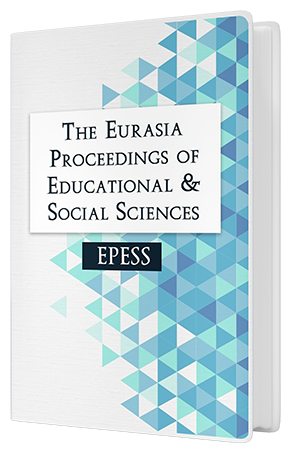The Art of Emotional Intelligence in Soft Skills: Generate the 1st Class Human Capital
Keywords:
Emotional intelligence, Soft skills, Generate, Human capitalAbstract
The focus in this short study is to clarify the soft skills development by the emotional intelligence standpoint purposing for generate the first-class human capital. Discussion on issues of Malaysian’s development scenario, the importance of emotional intelligence and the importance of soft skills will discuss in detail. The year 2020 is targeted by Malaysia to becoming a developed country with our own way. The exact aspiration is to develop the ideal human capital in balance with the emotional intelligence and acceptable mindset fitting the way of life from one generation to one generation. The stable country’s development in politic, economic and social field are significant to human value as mentioned in Maslow’s theories. Many of world civilizations always noted by the best achievement in the fact of physically facilities, infrastructures, level of literacy, stable economic status and political that able to influence the world order. Unfortunately, some of world society lives in absent of holistic value, inconsiderate, depression and lack of religion grasp. Historically Malaysia has been colonized by European around 446 years. Some of social, economy and political patterns influenced the Malaysians way of living. Some actions should be considered to preserve our valuable traditions, norms, culture inherited by our relatives from different demographical background. Those values supposed as the truly image of first class human capital incorporated with the developing and generating the art of emotional intelligence in soft skills among Malaysian students.Downloads
Published
Issue
Section
License
Copyright (c) 2018 The Eurasia Proceedings of Educational and Social Sciences

This work is licensed under a Creative Commons Attribution-NonCommercial-ShareAlike 4.0 International License.
The articles may be used for research, teaching, and private study purposes. Any substantial or systematic reproduction, redistribution, reselling, loan, sub-licensing, systematic supply, or distribution in any form to anyone is expressly forbidden. Authors alone are responsible for the contents of their articles. The journal owns the copyright of the articles. The publisher shall not be liable for any loss, actions, claims, proceedings, demand, or costs or damages whatsoever or howsoever caused arising directly or indirectly in connection with or arising out of the use of the research material. All authors are requested to disclose any actual or potential conflict of interest including any financial, personal or other relationships with other people or organizations regarding the submitted work.




